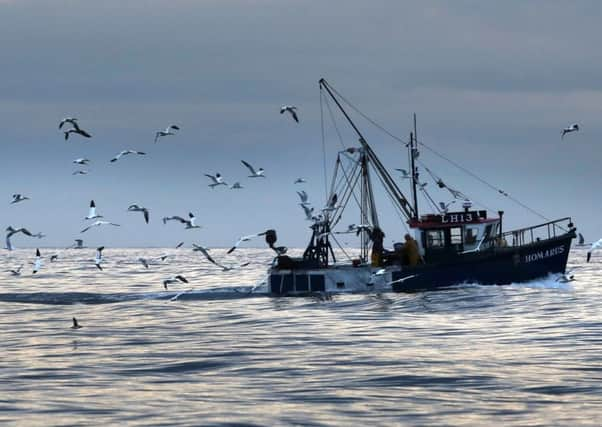Maria Aira Martin: It's worth listening to local fishermen


In Galicia, where I come from, I had a teacher at high school who used to say that fishermen were worth listening to. His reasoning was that a life spent working in an extremely dangerous environment imparted a brand of wisdom that it would be hard to obtain otherwise. It’s an especially relevant point right now, with six fishermen lost from Scottish vessels in recent weeks. Whatever else it does, living with that sort of reality is bound to make you think and commands a certain respect.
It is understandable that those who come from fishing communities are more likely to feel a high level of attachment to this activity. We are talking about the essence and heartbeat of a community, so the bond goes beyond the fact that fishing is an economic sector. This is a subjective view that is not, however, required to grasp some basic points.
Advertisement
Hide AdAdvertisement
Hide AdAll the relevant decisions for the fishing industry are taken in Brussels, where people are geographically – and sometimes mentally – far from the fishing communities’ needs. A host of external elements not directly related to fisheries, fishermen or the conservation of the resources shape a scenario of fear to “what is next” in terms of legislation.
The European Commission argued in its 2009 green paper on reforming the Common Fisheries Policy (CFP) that one of the existing system’s five structural failings was “a framework that does not give sufficient responsibility to the fishing industry”. Well, listening to the industry’s concerns could be a first step in tackling this problem.
Take the regulations governing the discard ban, otherwise known as the landings obligation. From Galicia to Shetland, it is hard to imagine a more unwieldy set of rules. Completely inappropriate to real-life fishing, they were framed without the benefit of fishers’ practical knowledge and experience and could prove completely unworkable.
The fishing industry accepts that the landings obligation is here to stay; the question is whether it can be implemented without destroying perfectly sustainable businesses and communities in the process. So far, a wise decision to phase in the rules has highlighted their many shortcomings before they can wreak havoc, but those shortcomings still have to be addressed.
In Shetland, fishing and aquaculture account directly for a third of the local economy’s output, and around 170 fishing boats of all shapes and sizes operate in some of the most productive and diverse seas in Europe. There is too much at stake here.
Our fishers are asking for a management system flexible enough to cope with the realities of complex marine ecosystems in the short and long term. Why insist on imposing something else, for no social or environmental benefit? In our view, zero discards is a worthy aim, but it will take time. It should be regarded as a long-term goal, not a snappy soundbite for themedia.
In the meantime, the real world keeps turning, and fishers are left to struggle with a system liable to criminalise them for failing to work with the unworkable.
Not that Shetlanders plan on giving up: with plenty of fish out there and no obvious alternatives, why should they? As in Galicia, we are talking here about a tradition deeply embedded in the local community. The next generation of Shetland fishers appears to be as deeply committed as its predecessors, resulting in packed training courses at NAFC Marine Centre in Scalloway. The fleet is reinvesting heavily in modernising existing boats and new builds, and 2016 could prove to be the fourth straight year of record whitefish landings.
Advertisement
Hide AdAdvertisement
Hide AdIn these outermost islands, fishing is a vigorous business with a future promising enough to attract youngsters. It has the sort of history and expertise that policymakers should be leaning on, not ignoring. Going down to talk to those who get their hands dirty should be a compulsory exercise for those in charge of configuring the rules of the game. As my teacher said, they are worth listening to. • Maria Aira Martin is policy officer for the Shetland Fishermen’s Association